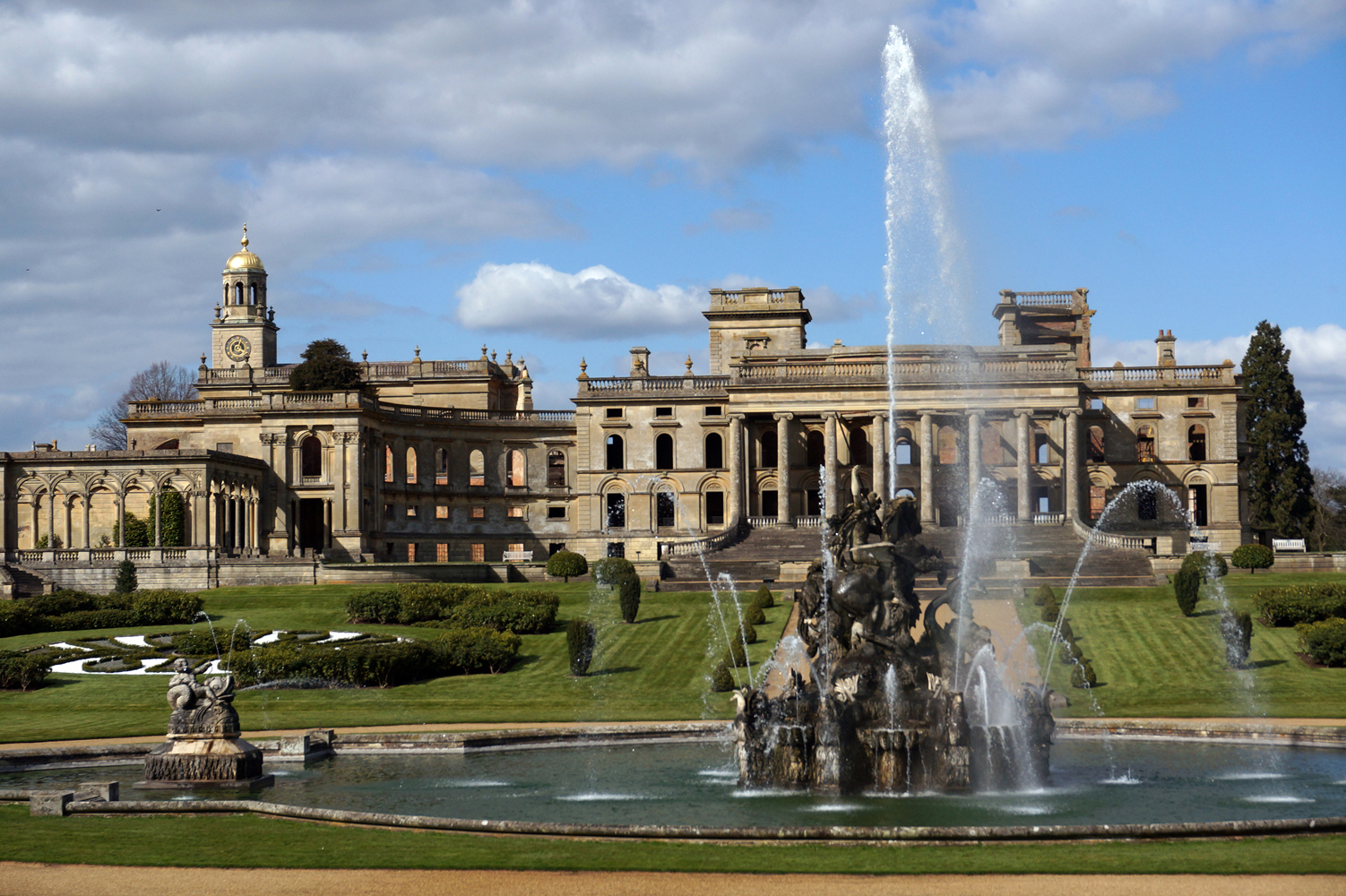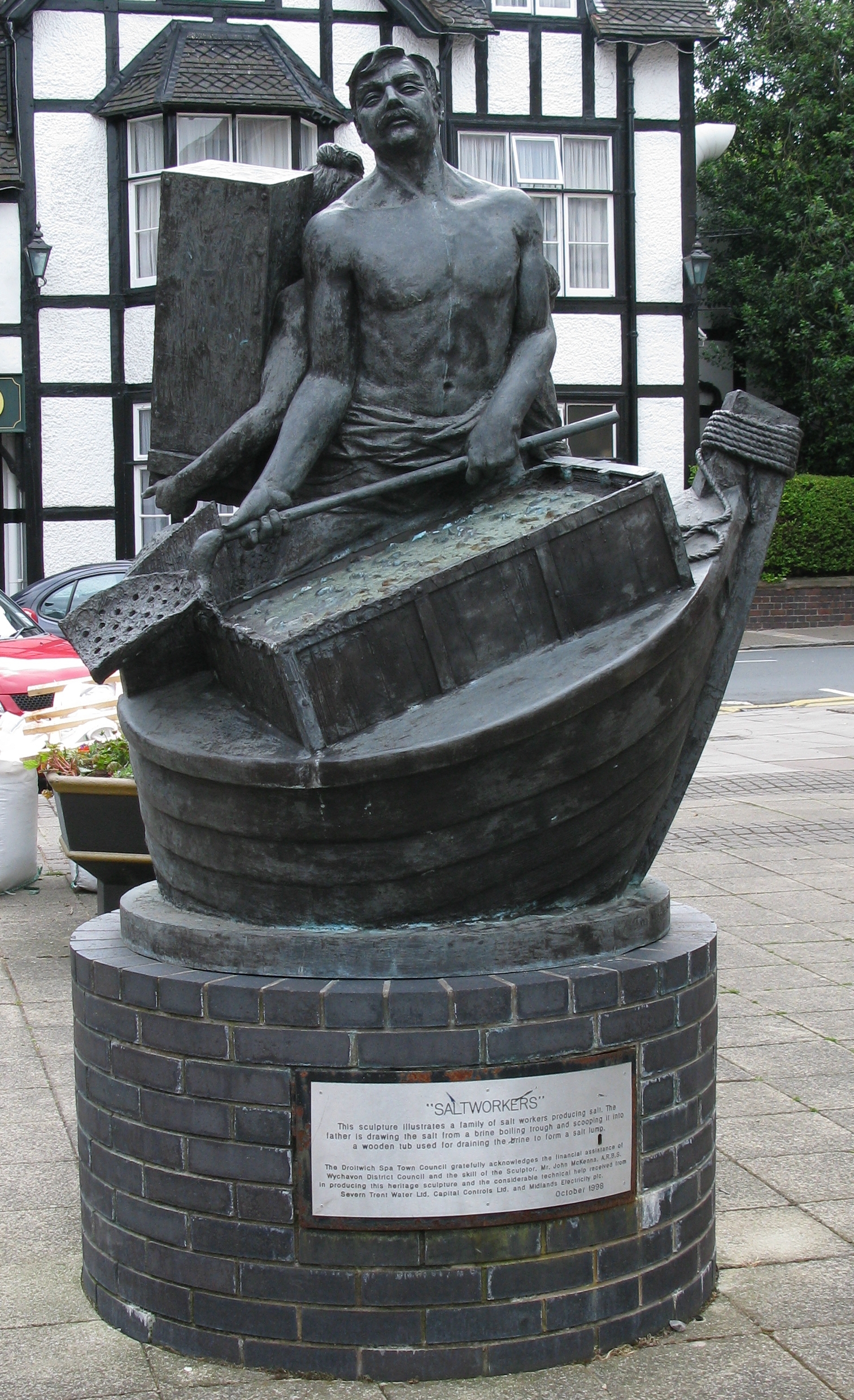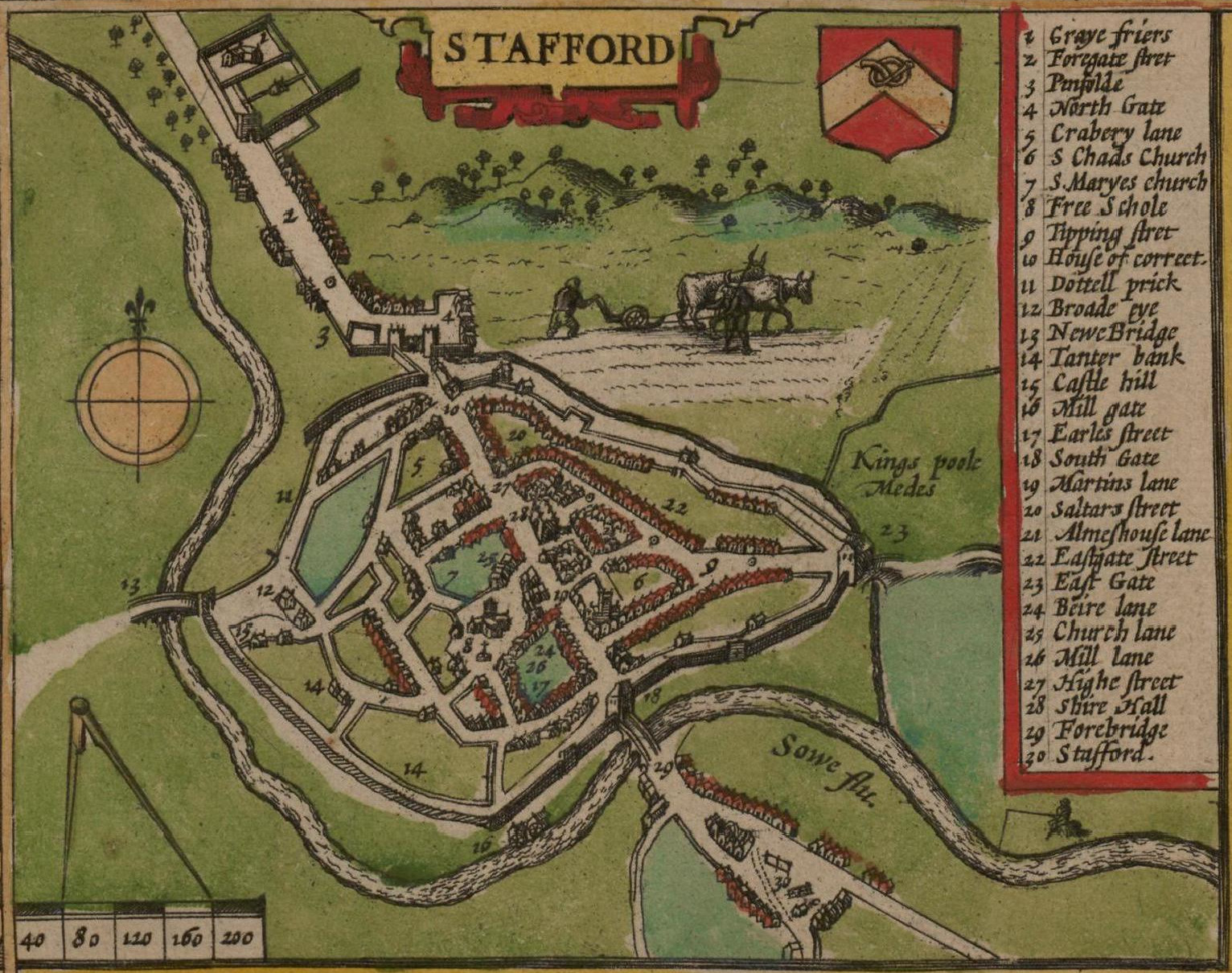|
Philip Foley
Philip Foley (12 May 1648 – December 1716) was the youngest of the three surviving sons of the British ironmaster Thomas Foley. His father transferred all his ironworks in the Midlands to him in 1668 and 1669 for £60,000. He also settled an estate at Prestwood near Stourbridge on him on his marriage, to which Philip added the manor of Kinver. Ironworks Philip ran the ironworks but found that they were not as profitable as they had been, and began from 1674 to sell them off. One group was bought by Sir Clement Clerke. He disposed of the last of them to two of his managers John Wheeler and Richard Avenant, and they also took over what had been Sir Clement Clerke's ironworks when some of those reverted to Philip Foley. Wheeler and Avenant were more successful in running a rather reduced business and leased blast furnaces in the Forest of Dean from Philip's brother Paul. In 1692, the two joined the managers in the business. Philip remained a partner for the rest of his ... [...More Info...] [...Related Items...] OR: [Wikipedia] [Google] [Baidu] |
Thomas Foley (1616–1677)
Thomas Foley (1617–1677) was an English ironmaster and politician who sat in the House of Commons at various times between 1659 and 1677. Life Foley was the eldest son of Richard Foley and his second wife Alice Brindley, herself the daughter of Sir William Brindley of Willenhall. His father was a prominent Midlands ironmaster of Stourbridge. Foley took over his father's business and made great profits from it in the 1650s and 1660s, which he used to buy estates. He was appointed High Sheriff of Worcestershire for 1656–57. In 1659 he was elected Member of Parliament for Worcestershire in the Third Protectorate Parliament. He was elected MP for Bewdley in 1660 for the Convention Parliament. In 1673 he was elected MP for Bewdley in a by-election to the Cavalier Parliament. Foley built Witley Court. In the late 1660s, he founded a bluecoat school at Stourbridge known as Old Swinford Hospital, which he endowed in his will. Foley married Anne Browne, daughter of John Brow ... [...More Info...] [...Related Items...] OR: [Wikipedia] [Google] [Baidu] |
Blast Furnace
A blast furnace is a type of metallurgical furnace used for smelting to produce industrial metals, generally pig iron, but also others such as lead or copper. ''Blast'' refers to the combustion air being supplied above atmospheric pressure. In a blast furnace, fuel ( coke), ores, and flux (limestone) are continuously supplied through the top of the furnace, while a hot blast of (sometimes oxygen enriched) air is blown into the lower section of the furnace through a series of pipes called tuyeres, so that the chemical reactions take place throughout the furnace as the material falls downward. The end products are usually molten metal and slag phases tapped from the bottom, and flue gases exiting from the top. The downward flow of the ore along with the flux in contact with an upflow of hot, carbon monoxide-rich combustion gases is a countercurrent exchange and chemical reaction process. In contrast, air furnaces (such as reverberatory furnaces) are naturally aspirated, usu ... [...More Info...] [...Related Items...] OR: [Wikipedia] [Google] [Baidu] |
Presbyterianism
Presbyterianism is a historically Reformed Protestant tradition named for its form of church government by representative assemblies of elders, known as "presbyters". Though other Reformed churches are structurally similar, the word ''Presbyterian'' is applied to churches that trace their roots to the Church of Scotland or to English Dissenter groups that were formed during the English Civil War, 1642 to 1651. Presbyterian theology typically emphasises the sovereignty of God, the authority of the Scriptures, and the necessity of grace through faith in Christ. Scotland ensured Presbyterian church government in the 1707 Acts of Union, which created the Kingdom of Great Britain. In fact, most Presbyterians in England have a Scottish connection. The Presbyterian denomination was also taken to North America, Australia, and New Zealand, mostly by Scots and Scots-Irish immigrants. Scotland's Presbyterian denominations hold to the Reformed theology of John Calvin and his i ... [...More Info...] [...Related Items...] OR: [Wikipedia] [Google] [Baidu] |
Robert Harley, 1st Earl Of Oxford And Mortimer
Robert Harley, 1st Earl of Oxford and Earl Mortimer, KG PC FRS (5 December 1661 – 21 May 1724) was a British statesman of the late Stuart and early Georgian periods. He began his career as a Whig, before defecting to a new Tory ministry. He was raised to the peerage of Great Britain as an earl in 1711. Between 1711 and 1714 he served as Lord High Treasurer, effectively Queen Anne's chief minister. He has been called a ''prime minister'', although it is generally accepted that the de facto first minister to be a prime minister was Robert Walpole in 1721. The central achievement of Harley's government was the negotiation of the Treaty of Utrecht with France in 1713, which brought an end to twelve years of English and Scottish involvement in the War of the Spanish Succession. In 1714 Harley fell from favour following the accession of the first monarch of the House of Hanover, George I, and was for a time imprisoned in the Tower of London by his political enemies. He wa ... [...More Info...] [...Related Items...] OR: [Wikipedia] [Google] [Baidu] |
British Whig Party
The Whigs were a political party in the Parliaments of England, Scotland, Ireland, Great Britain and the United Kingdom. Between the 1680s and the 1850s, the Whigs contested power with their rivals, the Tories. The Whigs became the Liberal Party when the faction merged with the Peelites and Radicals in the 1850s. Many Whigs left the Liberal Party in 1886 over the issue of Irish Home Rule to form the Liberal Unionist Party, which merged into the Conservative Party in 1912. The Whigs began as a political faction that opposed absolute monarchy and Catholic emancipation, supporting constitutional monarchism and parliamentary government, but also Protestant supremacy. They played a central role in the Glorious Revolution of 1688 and were the standing enemies of the Roman Catholic Stuart kings and pretenders. The period known as the Whig Supremacy (1714–1760) was enabled by the Hanoverian succession of George I in 1714 and the failure of the Jacobite rising of 1715 b ... [...More Info...] [...Related Items...] OR: [Wikipedia] [Google] [Baidu] |
Thomas Foley, 1st Baron Foley (1673–1733)
Thomas Foley, 1st Baron Foley FRS (8 November 1673 – 22 January 1733), of Witley Court, Great Witley, Worcestershire, was an English landowner, ironmaster and Tory politician who sat in the English and British House of Commons from 1694 until 1712, when he was raised to the peerage as Baron Foley as one of Harley's Dozen. Foley was the eldest son of Thomas Foley and inherited the Great Witley estate on his father's death. His younger brothers were Edward Foley and Richard Foley. He was educated at Sheriffhales academy under John Woodhouse in 1689 and then for some years at Utrecht. He was admitted at Lincoln's Inn on 30 May 1695. Foley was returned as Member of Parliament for Stafford at a by election on 21 November 1694 followed up by an unopposed return at the 1695 English general election. He was a Commissioner for taking subscriptions to the land bank in 1696. He held the seat at Stafford until 1712 when he was raised to the peerage, as one of 12 peers created on the ... [...More Info...] [...Related Items...] OR: [Wikipedia] [Google] [Baidu] |
Thomas Foley (c
Thomas Foley or Tom Foley may refer to: Political figures * Thomas Foley (Australian politician) (1853–1920), member of the Queensland Legislative Assembly * Thomas C. Foley (born 1952), American diplomat * Thomas F. "Big Tom" Foley (1852–1925), American Tammany Hall politician and saloon keeper in New York City * Tom Foley (Australian politician) (1886–1973), member of the Queensland Legislative Assembly * Tom Foley (1929–2013), American congressman and Speaker of the House * Tom Foley (Pennsylvania politician) (born 1953), politician from Pennsylvania who became President of Mount Aloysius College * Tom Foley (New Jersey politician), politician from New Jersey who served in the State Assembly Others * Thomas Foley (Royal Navy officer) (1757–1833), British admiral * Thomas Patrick Roger Foley (1822–1879), American religious leader * Thomas Foley, journalist and friend of Ian Holbourn, who married RMS ''Lusitania'' survivor Avis Dolphin * Tom Foley (infielder) ... [...More Info...] [...Related Items...] OR: [Wikipedia] [Google] [Baidu] |
British House Of Commons
The House of Commons is the lower house of the Parliament of the United Kingdom. Like the upper house, the House of Lords, it meets in the Palace of Westminster in London, England. The House of Commons is an elected body consisting of 650 members known as members of Parliament (MPs), who are elected to represent constituencies by the first-past-the-post system and hold their seats until Parliament is dissolved. The House of Commons of England began to evolve in the 13th and 14th centuries. In 1707 it became the House of Commons of Great Britain after the political union with Scotland, and from 1801 it also became the House of Commons for Ireland after the political union of Great Britain and Ireland. In 1922, the body became the House of Commons of the United Kingdom of Great Britain and Northern Ireland after the independence of the Irish Free State. Under the Parliament Acts 1911 and 1949, the Lords' power to reject legislation was reduced to a delaying power. The gove ... [...More Info...] [...Related Items...] OR: [Wikipedia] [Google] [Baidu] |
Droitwich (UK Parliament Constituency)
Droitwich Spa (often abbreviated to Droitwich ) is an historic spa town in the Wychavon district in northern Worcestershire, England, on the River Salwarpe. It is located approximately south-west of Birmingham and north-east of Worcester, England, Worcester. The town was called Salinae in Roman times, then later called Wyche, derived from the Anglo-Saxon Hwicce kingdom, referred to as "Saltwich" according to Anglo-Saxon charters, with the Droit (meaning "right" in French) added when the town was given its charter on 1 August 1215 by John, King of England, King John. The "Spa" was added in the 19th century when John Corbett developed the town's spa facilities. The River Salwarpe running through Droitwich is likely derived from ''sal'' meaning "salt" and ''weorp'' which means "to throw up" - i.e. "the river which throws up salt" - which overflows from the salt brines. The town is situated on massive deposits of salt, and salt has been extracted there since ancient times. The na ... [...More Info...] [...Related Items...] OR: [Wikipedia] [Google] [Baidu] |
Stafford (UK Parliament Constituency)
Stafford () is a market town and the county town of Staffordshire, England. It is located about south of Stoke-on-Trent, north of Wolverhampton, and northwest of Birmingham. The town had a population of 71,673 at the 2021–2022 United Kingdom censuses, 2021 census, and is the main settlement within the larger Borough of Stafford, which had a population of 136,837 in 2021. Stafford has Anglo-Saxons, Anglo-Saxon roots, being founded in 913, when Æthelflæd, List of monarchs of Mercia, Lady of the Mercians founded a defensive burh, it became the county town of Staffordshire soon after. Stafford became an important market town in the Middle Ages, and later grew into an important industrial town due to the proliferation of shoemaking, engineering and electrical industries. History Ancient Prehistoric finds suggest scattered settlements in the area, whilst south-west of the town lies an British Iron Age, Iron Age hill fort at Berry Ring. There is also evidence of Roman Brit ... [...More Info...] [...Related Items...] OR: [Wikipedia] [Google] [Baidu] |
Bewdley (UK Parliament Constituency)
Bewdley was the name of a constituency of the House of Commons of England from 1605 and from 1707 the House of Commons of the Parliament of the United Kingdom until 1950. Until 1885 it was a parliamentary borough in Worcestershire, represented by one Member of Parliament; the name was then transferred to a county constituency from 1885 until 1950. Its MPs included the former Prime Minister Stanley Baldwin, who represented the seat from 1908 to 1937, and afterwards took the name of the constituency as part of his title when he was raised to the peerage. Boundaries 1885–1918: The Boroughs of Bewdley and Worcester, the Sessional Divisions of Hundred House, Tenbury, and Worcester, and part of the Sessional Divisions of Malvern and Stourport. 1918–1950: The Borough of Bewdley, the Urban Districts of Malvern and Stourport, the Rural Districts of Hartley, Rock, Tenbury, and Upton-on-Severn, the Rural District which consisted of the parishes of Redmarley D'Abitot and Staunton, an ... [...More Info...] [...Related Items...] OR: [Wikipedia] [Google] [Baidu] |
Cheshire
Cheshire ( ) is a Ceremonial counties of England, ceremonial county in North West England. It is bordered by Merseyside to the north-west, Greater Manchester to the north-east, Derbyshire to the east, Staffordshire to the south-east, and Shropshire to the south; to the west it is bordered by the Welsh counties of Flintshire and Wrexham County Borough, Wrexham, and has a short coastline on the Dee Estuary. The largest settlement is Warrington. The county has an area of and had a population of 1,095,500 at the 2021 United Kingdom census, 2021 census. The areas around the River Mersey in the north of the county are the most densely populated, with Warrington, Runcorn, Widnes, and Ellesmere Port located on the river. The city of Chester lies in the west of the county, Crewe in the south, and Macclesfield in the east. For Local government in England, local government purposes Cheshire comprises four Unitary authorities of England, unitary authority areas: Cheshire East, Cheshire We ... [...More Info...] [...Related Items...] OR: [Wikipedia] [Google] [Baidu] |








